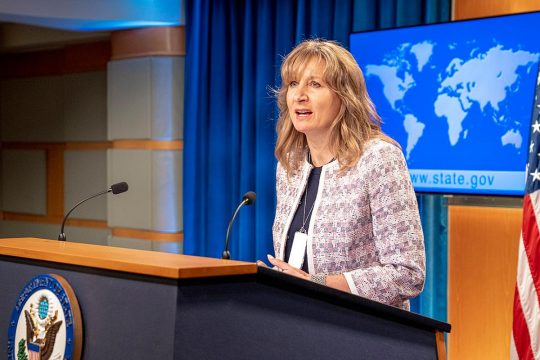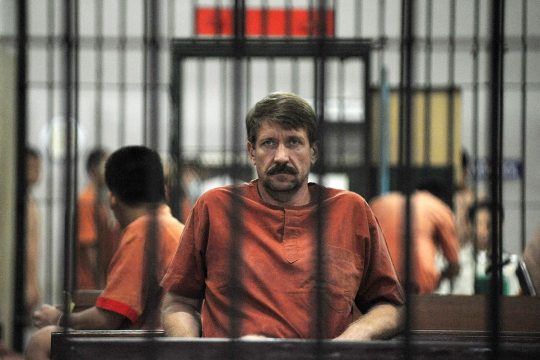The Syrian regime of Bashar al-Assad targeted and killed US reporter Marie Colvin in February 2012 to stop her from covering government atrocities, according to a lawsuit filed in US court on Saturday.
The Syrian military intercepted Colvin's communications and unleashed a barrage of rocket fire on her position in the besieged city of Homs, according to documents filed in US district court in Washington.
Colvin, then reporting for the London Sunday Times, was killed with French photographer Remi Ochlik. British photographer Paul Conroy, French reporter Edith Bouvier, and Syrian media defender Wael al-Omar were wounded in the same attack.
The suit alleges that acting "with premeditation, Syrian officials deliberately killed Marie Colvin by launching a targeted rocket attack" against the makeshift broadcast studio in Homs where Colvin and other reporters were based.
The lawsuit is based on information from captured government documents and defectors. It names several Syrian officials including Assad's brother Maher.
After an informant confirmed Colvin's presence at the site, Syrian artillery units "deliberately launched salvos of rockets and mortars directly at the Media Center.
"Using a targeting method called 'bracketing,' multiple rockets were launched to either side of the Media Center, drawing closer with each round," the suit states.
The rocket attack "was the object of a conspiracy" by senior Assad regime officials "to surveil, target, and ultimately kill civilian journalists in order to silence local and international media as part of its effort to crush political opposition," the document reads.
The suit was filed on behalf of Colvin's sister Cathleen Colvin and other surviving family members by the non-profit Center for Justice and Accountability.
Colvin, who was 56, covered many of the bloodiest conflicts of the past three decades. She wore a black eye-patch after losing an eye in a grenade blast reporting on Sri Lanka's civil war in 2001.


